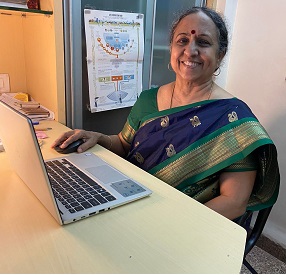When searching online databases, using the words – AND, OR and NOT, is a common practice. The terms AND, OR and NOT are called “Boolean Operators”.
“But this is so simple and basic. Why are you writing a blog post about this?” – you might ask.
I write this blog post because it is important to use Boolean Operators correctly while searching. It is important that anyone who searches online should know how these terms work. Everyone thinks it is simple. But many people make mistakes in their usage. I am not talking about the inadvertent slips (I make them too), but the mistakes people make, thinking they are searching correctly.
Let me share some very basic points about using Boolean Operators
The difference between the “English AND” and the “Boolean AND”
- The English language usage is as a Conjunction and the Boolean usage is to check out the presence of more than one term in a document
When we speak or write in English, we use “and” as a conjunction. Two objects – Pencil and pen. Two people – Sita and Gita.
When we search online, we use AND to combine two (or more) terms. When we do this we are really asking for result documents that contain both terms together. For example – article records that contain diabetes and hypertension in the same document. - The number of results is more when used as a conjunction, less when used as a Boolean operator
If I say, I want a pen, I am asking for ONE object. If I say that I want a pen and a pencil – I want TWO objects. With every ask of mine, the number of objects I want, increases.
If I search for Pen AND Pencil, using the Boolean AND, I am asking for documents that contain both terms together. So we get less results than the number of documents that contain pen alone or pencil alone
The difference between the English OR and Boolean OR
- It is the opposite of the use of AND. As an English conjunction it indicates any (single) one of two or more wants. If I say that I want a pen or a pencil, I want only one out of two items.
As a Boolean operator, it means that every result document that I get must contain a minimum of one item. The document may contain any one or both words.
The mistakes people make while searching
- They use the Boolean operator as if it is a conjunction
- They expect results based on how a conjunction works
When I help someone with a search query for which they got very few results, they ask – “Can we add AND children?”. I need to explain that when they already got very few, adding AND – any term – will reduce the results further.
There is lots more to learn about using AND, OR and NOT. Online databases allow one to combine several terms using several Boolean operators. The combinations have to be done carefully. Only when one learns the ABCs of Boolean Operators can one search multiple terms with multiple operators correctly.
The mistakes people make while teaching Boolean operators
This sadly is worse. I have observed health professionals teach the use of Boolean operators when they themselves have not been clear about them. I worry about the people they teach. They would most probably revere the teacher and believe that what they learnt is right.
And then, even if these teachers teach it right, it is often with poor examples like
- Diabetes AND children
- Diabetes OR children
- Diabetes NOT children
The first and third are okay. But the second is not! Diabetes OR children will get some results with diabetes, some with children and some with both. What would one do with articles about children – where there is nothing about diabetes? Why would one search for a Disease OR a population?
One should teach it using examples like
- Diabetes OR Hypertension (two diseases)
- Diabetes OR Low blood sugar (the disease or a symptom of the disease)
- Anemia OR Anaemia (spelling variations for a disease)
QMed teaches the basics of Boolean operators (and some more “must know” basics) in its free course – “Information Resources and Literature Searching”. We strongly urge every health science student and professional to go through this course, to strengthen their search skills and importantly to teach them correctly. Do visit www.qmedcourses.in





